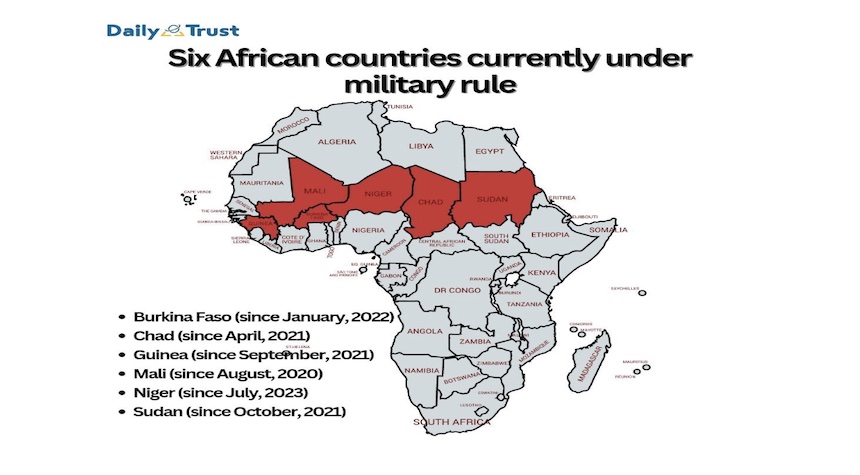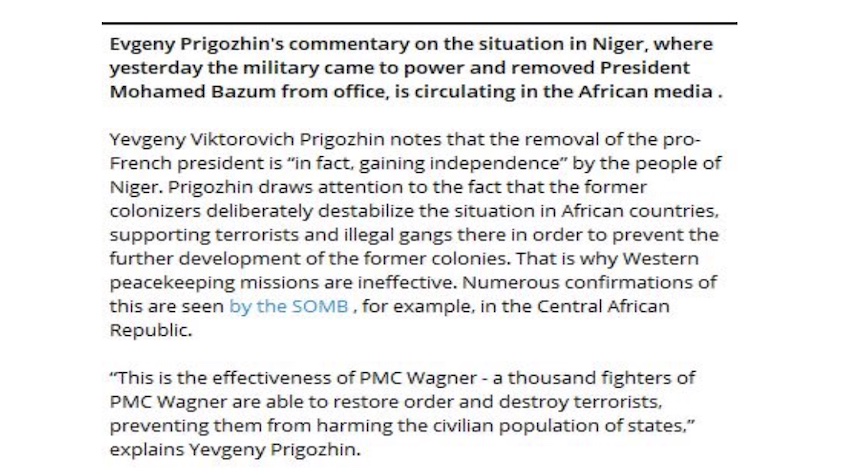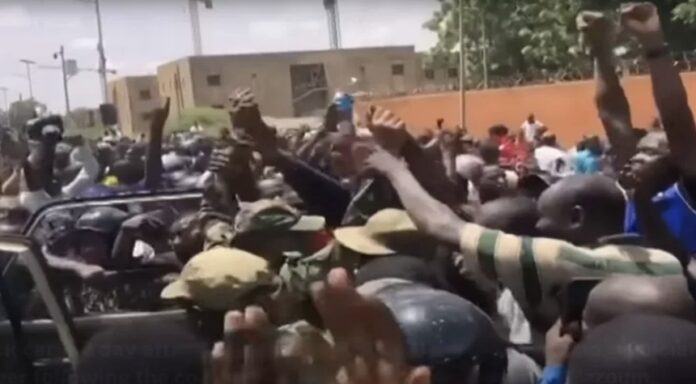The Niger army announced on Wednesday that they had ousted President Mohamed Bazoum. The head of the Presidential Guard General Abdourahamane Tchiani led the coup. Bazoum was elected by the people in 2021 but has since seen his popularity wane as drought, corruption, and economic malaise have combined to create a perfect storm for disillusionment. He is still being held in Niamey, the capital.
The removal of Bazoum from office and the installation of a new military administration became official on Thursday when Tchiani declared himself the new president. General Abdou Sidikou Issa confirmed that the military had supported the coup.
The coup in Niger highlights the political stability in the Sahel. This is the sixth coup in that area in the past year and a half. Burkina Faso’s elected government, as well as those of Sudan, Guinea, and Chad, had all fallen.

Ultimatum
The African Union Peace and Security Council issued a 15-day ultimatum shortly after General Tchiani announced that he had taken over.
The Senate condemns the military coup in Niger that resulted in removing a democratically-elected President, H.E. Mohamed Bazoum, on July 26, 2023.
The military personnel are required to return immediately and without condition to their barracks and to restore constitutional authority within fifteen (15) days of the date of adoption of this Communique.
Also demands the immediate and unconditional freedom of H.E.
The Economic Community of West African States, or ECOWAS, imposed sanctions and issued an ultimatum on Niger the next day. This is no idle threat. ECOWAS intervened against Ivory Coast (2003) and Liberia (2003) as well as Guinea-Bissau, Mali, and Gambia in 2012.
Russia, Russia, Russia
Yevgeny Prgozhin, the leader of Wagner Group PMC, was one of the first supporters of the coup.

There were some people in the crowd who were chanting “long live Putin” and carrying Russian flags.
Wagner is packing up, Prigozhin meeting African leaders in San Petersburg, in Niger people are marching with Russian flags, one less French outpost in Africa. pic.twitter.com/vwMdRaPtrX
— Estadodederechas (@Estadodederech1) July 27, 2023
Russia condemns the coup.
Sanctions
The US took a measured tone as this unfolded, saying that US aid would be in danger if an elected government wasn’t restored.
Emmanuel Macron, the French president, denounced and warned sanctions against this coup. He implied that France would use force if “its interests” were threatened. France and the EU both cut off financial aid to Niger.
The pro-coup protesters responded by seizing France’s Embassy.
This coup has a major impact on France. France is heavily involved in stopping the spread of the Islamic State across the Greater Sahara. The government of Mali – also ruled militarily – evicted French soldiers who had taken up residence in Niger at the beginning of this month.
Counter Sanctions
The government of Niger accused France on Monday of conspiring to release former President Bazoum with remnants from the former regime.
France cut financial aid and threatened sanctions, but the Niger government retaliated with a ban on all gold and uranium exports to France.
The Implications
Niger was one of the most stable countries in the region. This is the only fifth coup in the country’s history since 1960, and the first one since 2010. Rapid successions of military coups are raising questions about whether a democracy can survive in this environment.
This coup may not open any doors to Russia. Wagner Group has troops stationed in Mali. However, the majority of Niger’s officers were trained in Western countries, and it is not clear that they are now looking toward Russia. Russia’s muted reaction to the coup can be interpreted as an acknowledgment that Russia is currently busy and not in a position to expand in Africa.
China has a wide range of economic interests in this region. It will be interesting to watch how Beijing reacts as the governance model shifts from “man with a gun” to “man in the street”.
Sahel countries play a crucial role in containing the Islamic State, which is gaining influence and destabilizing the Greater Sahara. The US and Western European countries will find it much harder to work with military juntas compared to nominally democratic civil governments. This suggests that terrorist activity will increase, especially in homegrown Islamic movements such as Nigeria’s Boko Haram.


